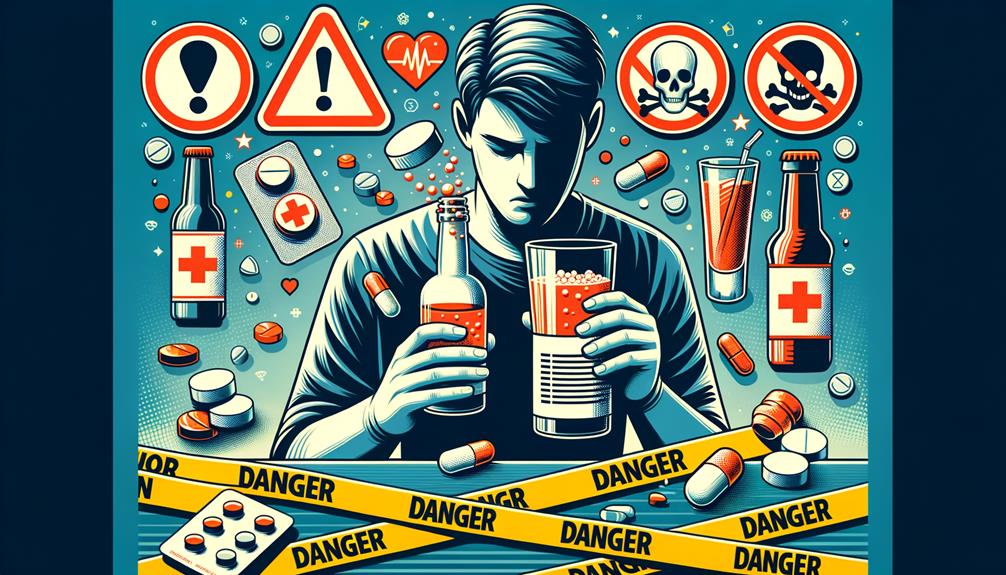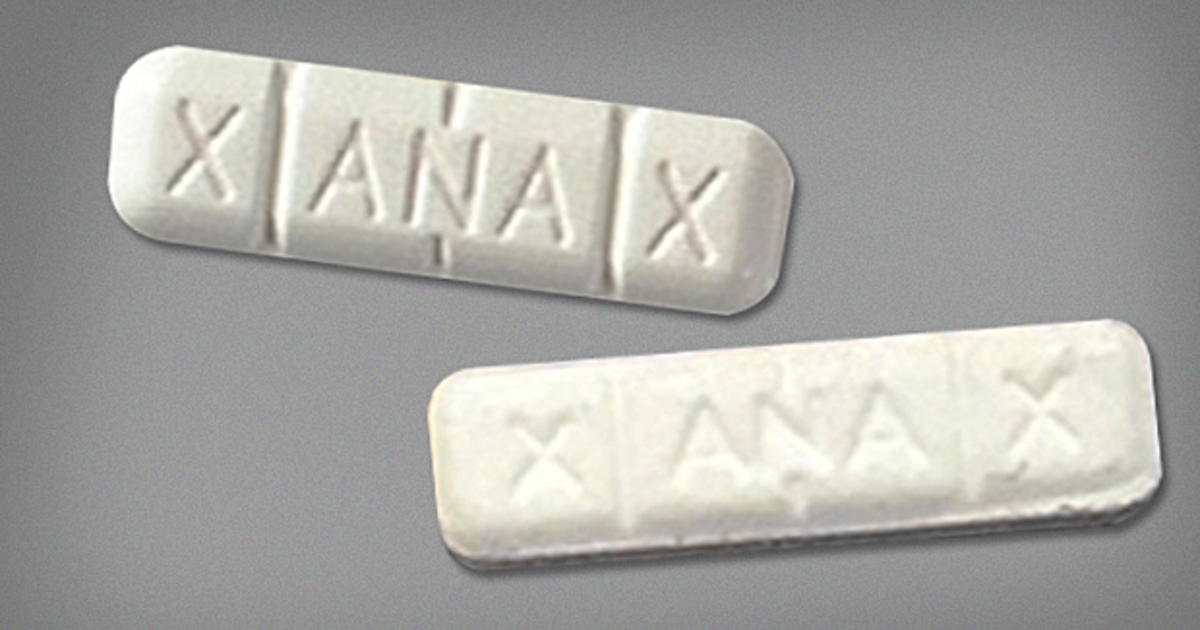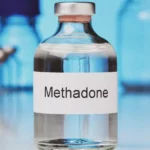If you're wondering whether Xanax can assist in alcohol detox, the answer lies in understanding its mechanism of action. While some believe it can be beneficial during detox, there are also risks and side effects to consider.
However, before making a decision, it's essential to explore the considerations for using Xanax in this context and to be aware of potential alternatives. The interplay between Xanax and alcohol detox is a complex issue that requires careful examination to make informed choices.
Mechanism of Action

Understanding the mechanism of action is crucial in elucidating how Xanax assists in alcohol detoxification. Xanax, also known as alprazolam, operates by modulating neurotransmitters in the brain, particularly by enhancing the effects of gamma-aminobutyric acid (GABA). GABA is an inhibitory neurotransmitter that plays a pivotal role in reducing neuronal excitability. By enhancing GABA activity, Xanax helps to calm the overactive brain function often seen in individuals experiencing alcohol withdrawal.
The modulation of neurotransmitters, especially the enhancement of GABA, results in a sedative effect that can alleviate symptoms such as anxiety, tremors, and seizures during alcohol detox. This calming effect aids in managing the potentially dangerous withdrawal symptoms that may arise when someone abruptly stops drinking alcohol. Ultimately, by targeting the brain's neurotransmitter activity, Xanax can assist individuals in safely navigating the challenging process of alcohol detoxification.
Benefits of Xanax in Detox
Xanax offers valuable support in alcohol detox by easing withdrawal symptoms and promoting a safer detoxification process through its calming effects on the brain's neurotransmitter activity. For individuals undergoing alcohol detox, managing anxiety is crucial, as withdrawal symptoms can be intense and challenging.
Xanax, a benzodiazepine medication, acts on the central nervous system to enhance the effects of a neurotransmitter called GABA, which helps reduce feelings of anxiety and promotes relaxation. By targeting the brain's GABA receptors, Xanax can alleviate symptoms such as restlessness, insomnia, and irritability commonly experienced during alcohol withdrawal.
The benefits of Xanax in alcohol detox extend beyond anxiety management. The medication can also help prevent severe withdrawal symptoms like seizures and delirium tremens, which can pose serious health risks if not managed appropriately. By providing a sense of calm and stability, Xanax supports individuals through the initial stages of detox, making the process more bearable and increasing the likelihood of a successful recovery journey.
Risks and Side Effects

As you consider the benefits of using Xanax in alcohol detox, it's essential to also be aware of the potential risks and side effects associated with this medication. While Xanax can be effective in managing withdrawal symptoms during alcohol detox, there are potential dangers that need to be taken into account. One of the primary risks of using Xanax in this context is the potential for dependence and addiction to the medication itself. Xanax belongs to a class of drugs known as benzodiazepines, which can be habit-forming if not used as prescribed.
In addition to the risk of addiction, Xanax can also cause side effects such as drowsiness, dizziness, confusion, and impaired coordination. These side effects can be exacerbated when Xanax is used in combination with alcohol, potentially leading to dangerous outcomes. It's crucial to use Xanax under close medical supervision to minimize these risks and ensure safe detoxification from alcohol. If you experience any concerning side effects or have a history of substance abuse, it's important to discuss these factors with a healthcare provider before using Xanax for alcohol detox.
Considerations for Xanax Use
Consider potential interactions with other medications when contemplating the use of Xanax for alcohol detox. It's crucial to consult a healthcare professional to evaluate the safety and effectiveness of combining Xanax with other medications during detox.
When using Xanax for alcohol detox, the dosage is typically started at a low level and adjusted based on individual response and needs. The initial Xanax dosage for alcohol detox is usually between 0.25mg to 0.5mg taken three times daily. This dosage may be titrated upwards as needed, but should be done so cautiously and under medical supervision to minimize the risk of adverse effects.
The duration of Xanax use during alcohol detox is typically short-term. Xanax isn't intended for long-term use due to the potential for tolerance, dependence, and addiction. Generally, Xanax is prescribed for a brief period to manage acute withdrawal symptoms and anxiety during the detox process. It's essential to follow the healthcare provider's recommendations regarding the duration of Xanax use to prevent complications and ensure a safe detoxification.
Alternatives to Xanax in Detox

Exploring alternative medications for alcohol detox can offer diverse options to support your journey towards recovery. Herbal remedies and holistic approaches are among the alternatives to Xanax that you may consider. Herbal remedies such as kava, valerian root, and passionflower have been used to help manage anxiety and promote relaxation during the detox process. These natural options may provide a gentler way to ease withdrawal symptoms without the potential risks associated with prescription medications.
Holistic approaches focus on treating the whole person, including their physical, mental, and emotional well-being. Techniques such as acupuncture, yoga, meditation, and massage therapy can be beneficial in reducing stress, improving sleep, and enhancing overall wellness as you navigate through alcohol detox. These practices not only address the physical symptoms but also promote a sense of calm and mental clarity, which can be essential during this challenging time.
Frequently Asked Questions
Can Xanax Be Used Safely in Combination With Other Medications During Alcohol Detox?
When combining Xanax with other medications during alcohol detox, safety is crucial due to potential drug interactions. Proper management of withdrawal symptoms is essential. Always consult a healthcare professional for guidance to ensure your well-being.
Are There Any Long-Term Effects of Using Xanax for Alcohol Detox?
Long term risks associated with xanax use in alcohol detox include potential dependency, cognitive impairment, and withdrawal symptoms if abruptly stopped. It's crucial to follow medical advice closely to mitigate these risks.
How Does Xanax Compare to Other Benzodiazepines in Terms of Effectiveness for Alcohol Detox?
In comparing Xanax efficacy to other benzodiazepines for alcohol detox, consider safety and potential combination effects. Consult a healthcare provider for personalized guidance. Stay informed on risks and benefits to make informed decisions.
Is Xanax Typically Prescribed as a Short-Term or Long-Term Solution for Alcohol Detox?
For alcohol detox, Xanax is usually prescribed as a short-term solution to manage withdrawal symptoms. It's important to follow the medication management plan provided by your healthcare provider to support your recovery effectively.
Are There Any Lifestyle Changes or Therapies That Should Be Used in Conjunction With Xanax During Alcohol Detox for Optimal Results?
To optimize results during alcohol detox with Xanax, consider lifestyle modifications like regular exercise and a balanced diet. Therapy strategies such as cognitive-behavioral therapy can complement Xanax use, providing holistic support for recovery.
- 20 Day Inpatient Alcohol Rehab - February 15, 2024
- Drug And Alcohol Rehab 77441 - February 15, 2024
- Alcohol Rehab York Pennsylvania - February 15, 2024









